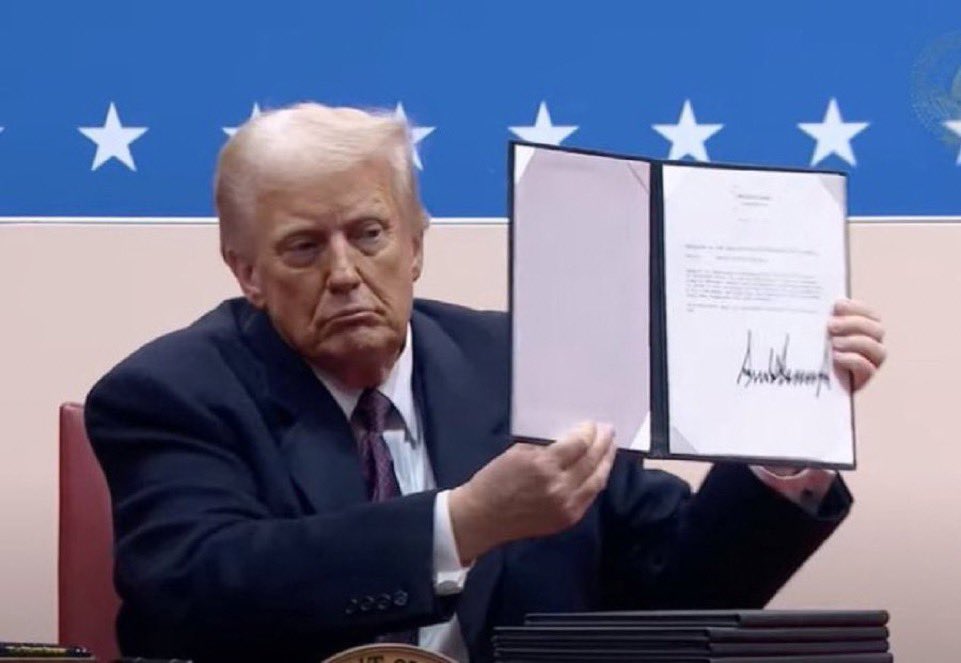From behind his desk in the Oval Office, President Donald Trump signed a flurry of executive orders and decrees aimed at cracking down on immigration.
From one order tackling the definition of birthright citizenship, to another declaring illegal immigration at the border a national emergency, Trump swiftly made moves on his promises to tighten the US-Mexico border.
But some of his plans – particularly around changing the definition of birthright citizenship – are likely to face significant hurdles.
He is already facing legal challenges from immigration advocacy groups, which have reacted furiously to his announcements.
One organisation said his plans “do not uphold American values”, and another said Trump’s administration was “actively trying to destroy our lives”.
In his inaugural address earlier in the day, Trump vowed that “all illegal entry will be halted” and that millions of “criminal aliens” would be deported.
He also signed an order declaring Mexican drug cartels terrorist organisations. “I have no higher responsibility than to defend our country from threats and invasions,” he explained.
At another event at Washington’s Capital One Arena, Trump formally revoked nearly 80 executive actions of his predecessor Joe Biden. He had previously vowed to scrap Biden’s policies “within five minutes”.
Following his inauguration, he also signed a proclamation that gave officials the authority to “repel, repatriate, or remove” migrants until he was satisfied that “the invasion at the southern border has ceased”.
Although the details of the order are not yet known, officials have said that Trump plans to end birthright citizenship.
That refers to an approach of the US government whereby anyone born on American soil is considered a citizen at birth, regardless of their parents’ immigration status.
Trump appears to be seeking to change the rules so that that the children of undocumented migrants living in the US will no longer automatically be considered US citizens. It would not apply retrospectively.
Exactly how he intends to achieve this is unclear, however, because birthright citizenship is enshrined in the constitution and would require a two-thirds vote in both chambers of Congress to change.
Trump has instructed federal agencies to stop issuing documentation to children born in the US to parents who are in the country illegally or on temporary visas, which could effectively deny them access to public services.
Advocacy group the American Civil Liberties Union (ALCU) immediately said it was suing the Trump administration over the order. “Denying citizenship to US-born children is not only unconstitutional – it’s also a reckless and ruthless repudiation of American values,” it said in a statement.


